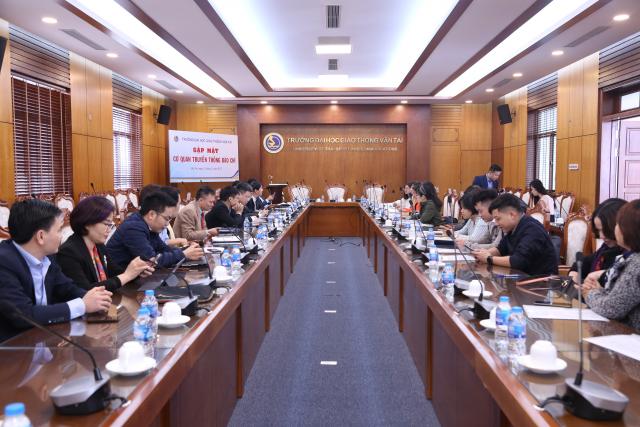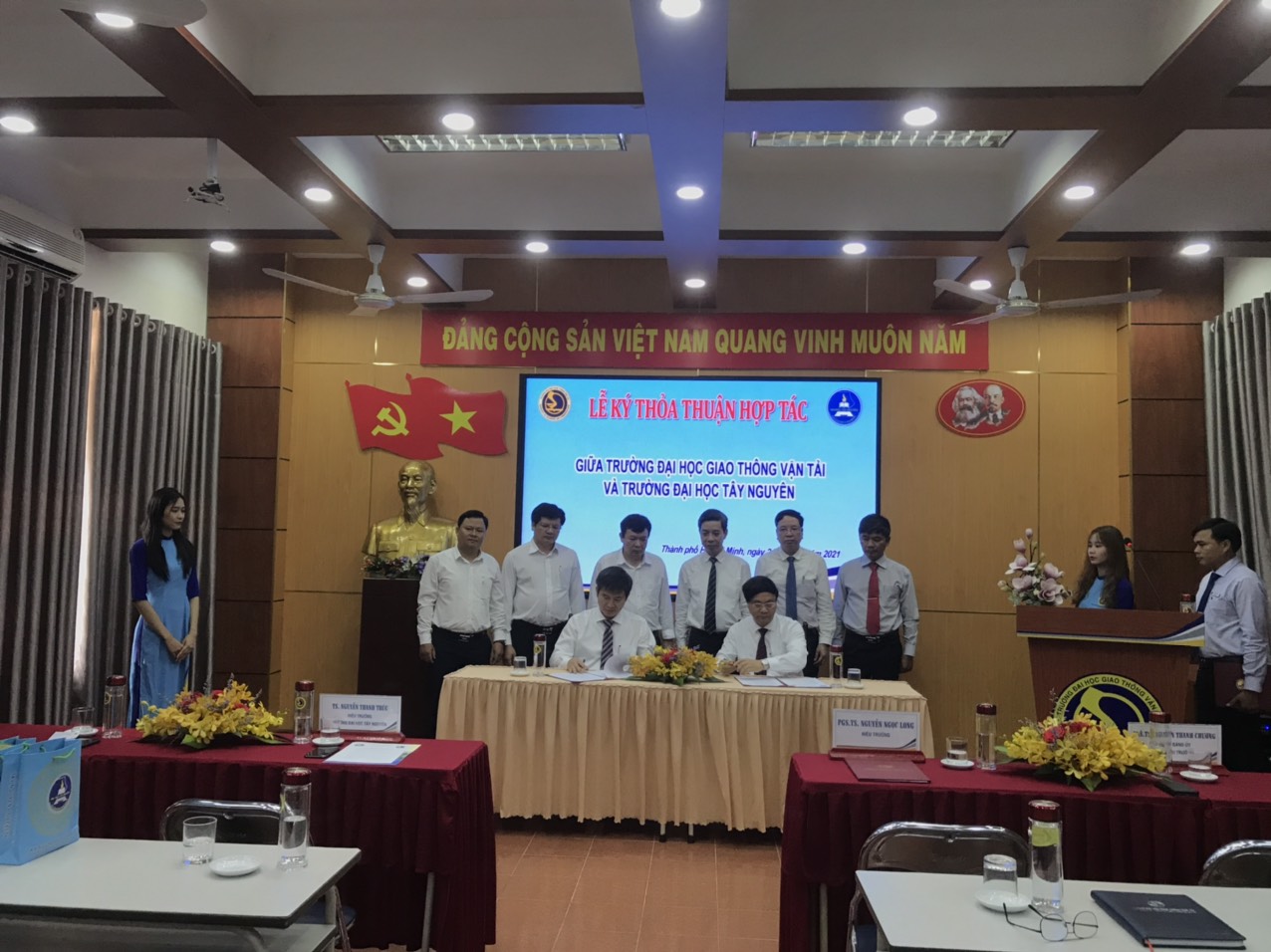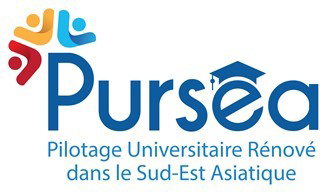BACHELOR'S AND ENGINEER'S LEARNING OUTCOMES FOR THE ADVANCED PROGRAM OF CIVIL ENGINEERING IN TRANSPORTATION CONSTRUCTION ENGINEERING
Starting from the 2021-2022 academic year, the Bachelor - Engineer Program in the Advanced Program in Transportation Construction Engineering (ATPCE in TCE) has established four first-level learning outcomes, thirteen second-level learning outcomes, and twenty-seven third-level learning outcomes.
These outcomes are categorized into six groups, as detailed in Table 1 below:
- 06 learning outcomes related to fundamental knowledge
- 02 learning outcomes related to core technical knowledge
- 04 learning outcomes related to specialized knowledge
- 08 learning outcomes related to personal skills and attitudes
- 07 learning outcomes related to professional skills and attitudes:
Table 1: Bachelor's and Engineer's Learning Outcomes for the Advanced Program in Transportation Construction Engineering according to CDIO approach
|
Group |
PLO Level 1 |
PLO Level 2 |
PLO Level 3 |
CDIO |
Bloom Bachelor |
Bloom Engineer |
|---|---|---|---|---|---|---|
|
Basic knowledge |
PLO 1: Possess basic knowledge in fundamental sciences, foreign languages, and social sciences. |
PLO 1: Possess basic knowledge in fundamental sciences. |
PLO 1: Possess basic knowledge in mathematics and fundamental sciences that meets the requirements for acquiring both general disciplinary and specialized subject knowledge. |
1.1 |
3 |
3 |
|
PLO 2: Apply technical drawing knowledge to interpret and present technical drawings in integrated design projects. |
1.1 |
3 |
3 |
|||
|
PLO 2: Possess foreign language proficiency. |
PLO 3: Achieve a foreign language proficiency of IELTS 5.5 or equivalent, with the ability to analyze and evaluate specialized construction-related content in a foreign language. |
1.1 |
4 |
4 |
||
|
PLO 3: Possess comprehensive knowledge in society, national security and defense, and physical education and sports. |
PLO 4: Understand and apply the fundamental principles of Marxism-Leninism, Ho Chi Minh Thought, and the revolutionary guidelines of the Communist Party of Vietnam. |
1.1 |
3 |
3 |
||
|
PLO 5: Able to evaluate and analyze national security and defense issues, and demonstrate the awareness to take appropriate actions to protect the nation. |
1.1 |
3 |
3 |
|||
|
PLO 6: Understand and apply fundamental scientific knowledge in physical education and sports during training and self-discipline to reinforce and enhance both the physical and mental health of individuals and communities. |
1.1 |
3 |
3 |
|||
|
Generic knowledge |
PLO 2: Possess foundational knowledge of the discipline, specialized subject knowledge, and integrated interdisciplinary knowledge. |
PLO 4 : Able to apply and analyze foundational disciplinary knowledge. |
PLO 7: Apply the acquired knowledge of fundamental disciplines such as mechanics, structures, geotechnics, hydraulics, construction materials, construction management, and architectural engineering. |
1.2 |
4 |
4 |
|
PLO5 : Vận dụng được kiến thức tích hợp, liên ngành, kết hợp CNTT |
PLO 8: Apply integrated, interdisciplinary knowledge of construction engineering, information technology, environmental protection, and sustainable development to address issues in construction engineering. |
1.2 |
3 |
3 |
||
|
PLO 9: Apply the latest achievements of information technology in professional practice, and effectively use modern technologies and equipment in work, study, and research. |
1.2 |
3 |
4 |
|||
|
Specific knowledge |
PLO 6 : Master the system of specialized and professional knowledge in the field, with the ability to calculate, analyze, and design construction projects. |
PLO 10: Master the system of specialized and professional knowledge in the field, and apply it creatively and effectively in analyzing real-world situations, proposing structural and technological solutions, and solving technical issues arising in practical activities such as surveying, design consulting, construction, supervision, inspection, management, and operation of civil and transportation infrastructure projects. Stay up to date with modern construction technologies worldwide. For engineers (additional): Apply and analyze in-depth knowledge of transportation infrastructure projects. |
1.3 |
3 |
4 |
|
|
PLO 11: Calculate, analyze, and design construction projects, with the ability to identify and solve tasks in the design of civil and transportation infrastructure projects.
For engineers (additional): Possess specialized design capabilities for transportation infrastructure projects. |
1.3 |
4 |
5 |
|||
|
PLO 7 : Able to participate in and organize the construction of building projects. |
PLO 12: Able to participate in and organize the construction of building projects. For engineers (additional): Capable of managing, operating, maintaining, and inspecting construction projects. Possess consulting and critical analysis skills on technical and technological issues in construction. |
1.3 |
3 |
4 |
||
|
Skills and individual attitude |
PLO 3: Possess analytical and systematic thinking abilities, along with strong working skills. |
PLO 8: Able to identify, develop, analyze, and solve real-world problems. |
PLO 13: Able to identify, develop, analyze, and solve real-world problems in the fields of design, construction, management, and operation of construction projects. |
2.1 |
4 |
5 |
|
PLO 14: Able to analyze and experiment with technical issues. |
2.2 |
4 |
4 |
|||
|
PLO 15: Systematic thinking skills in solving construction engineering problems, addressing specific issues within the overall context of construction projects. |
2.3 |
4 |
4 |
|||
|
PLO 9 : Positive personal skills and mindset, with the right professional attitude and ethics. |
PLO 16: Positive personal skills and mindset: the ability to propose creative solutions to specialized problems; self-learning and working independently, as well as a commitment to lifelong learning. |
2.4 |
3 |
4 |
||
|
PLO 17: Work responsibly, with the right professional attitude, ethics, discipline, and industrial working style. For engineers (additional): Able to meet the professional engineering standards required in developed countries. |
2.5 |
3 |
4 |
|||
|
PLO 10 : Ability to work in teams and adapt to a professional global working environment.
|
PLO 18: Ability to work collaboratively, with respect, creativity, and responsibility as a team member or team leader. Capable of embracing differences for a common goal. |
3.1 |
4 |
4 |
||
|
PLO 19: Ability to present personal opinions and knowledge, provide critical evaluations both in writing and verbal communication, appropriate to a professional environment. For engineers (additional): Ability to adapt to a professional global working environment. |
3.2 |
3 |
4 |
|||
|
PLO 11: Able to produce and analyze documents using the English language.
|
PLO 20: Able to produce and analyze documents in English related to their field of expertise. Proficient in communicating effectively in English in various situations. |
3.3 |
4 |
4 |
||
|
Skills and profession attitudes |
PLO 4: Understand the role and responsibilities within an organization, with strong leadership and project implementation skills. |
PLO 12: Understand the role and responsibilities within an organization, with effective leadership skills. |
PLO 21: Understand the role and responsibilities of a construction engineer, and assess the impact of construction engineering technology on social development and vice versa.
For engineers (additional): Ability to integrate and work in an international environment. |
4.1 |
3 |
4 |
|
PLO 22: Understand and respect international business structures in the construction industry and be able to work effectively within these organizations. |
4.2 |
3 |
4 |
|||
|
PLO 27: Possess leadership, decision-making, guidance, and entrepreneurship skills, with the ability to create job opportunities for oneself and others. For engineers (additional): Demonstrate these skills effectively in different conditions and circumstances. |
4.7, 4.8 |
2 |
3 |
|||
|
PLO 13: Ability to establish, apply, and implement projects. |
PLO 23: Ability to define the functional requirements of a project to shape and develop design concepts. |
4.3 |
3 |
4 |
||
|
PLO 24: Ability to flexibly apply design processes and propose optimal solutions to achieve set objectives, with the ability to compare and evaluate options. For engineers (additional): Ability to analyze solutions in different situations. |
4.4 |
4 |
5 |
|||
|
PLO 25: Ability to implement design products by participating in construction and organization. For engineers (additional): Ability to lead, manage, and operate construction projects. |
4.5 |
3 |
4 |
|||
|
PLO 26: Ability to analyze the condition of a project based on design knowledge and construction technology. For engineers (additional): Ability to assess project quality, make decisions on project acceptance for use, or propose maintenance, repair, and upgrade solutions for transportation infrastructure. |
4.6 |
3 |
4 |


